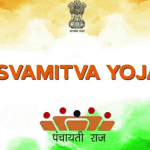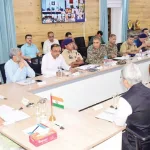The Sher-e-Kashmir University of Agricultural Sciences and Technology (SKUAST) of Kashmir plays a pivotal role in the socio-economic development of the Kashmir Valley. Founded in 1982, SKUAST-Kashmir is a leading agricultural university that focuses on agricultural and allied education, research, extension services and innovation and entrepreneurship development in the recent past. The university’s efforts aim is to promote sustainable agriculture, improve farming practices, enhance food security, and contribute to the economic growth of both the region and the nation as a whole.
Agricultural Development
SKUAST-Kashmir has been instrumental in promoting agricultural development in the Kashmir Valley. The university has:
- Developed high-yielding crop varieties: SKUAST-Kashmir has developed several high-yielding crop varieties, including wheat, rice, and maize, which have significantly increased crop productivity in the region.
- Introduced improved agricultural practices: The University has introduced improved agricultural practices, such as precision farming, organic farming, and integrated pest management, which have enhanced crop yields and reduced environmental degradation.
- Provided training and extension services: SKUAST-Kashmir has provided training and extension services to farmers, enabling them to adopt new technologies and improve their livelihoods.
Horticultural Research and Development
SKUAST-Kashmir has made significant contributions to horticultural research and development in the Kashmir Valley. The university has:
- Developed new fruit and vegetable varieties: SKUAST-Kashmir has developed several new fruit and vegetable varieties, including apples, cherries, and carrots, which are well-suited to the region’s climate and soil conditions.
- Improved post-harvest management practices: The University has developed improved post-harvest management practices, including storage and packaging techniques, which have reduced fruit and vegetable losses and improved their quality.
- Promoted floriculture and apiculture: SKUAST-Kashmir has promoted floriculture and apiculture in the region, providing training and support to farmers and entrepreneurs.
Advancement in Veterinary Health and Production
SKUAST-Kashmir’s veterinary sciences programs have had a significant impact on animal health and productivity in the Kashmir Valley. The university has:
- Developed vaccines and diagnostic kits: SKUAST-Kashmir has developed vaccines and diagnostic kits for various animal diseases.
- Provided veterinary extension services: The University has provided veterinary extension services to farmers, enabling them to access veterinary care and advice for their animals.
- Conducted research on animal nutrition and breeding: SKUAST-Kashmir has conducted research on animal nutrition and breeding, improving the productivity and health of livestock in the region.
Environmental Sustainability
SKUAST-Kashmir has taken several initiatives to promote environmental sustainability and conservation in the Kashmir Valley. The university has:
- Conducted research on climate change and its impacts: SKUAST-Kashmir has conducted research on climate change and its impacts on agriculture, horticulture, and animal husbandry in the region.
- Promoted organic farming and sustainable agriculture practices: The University has promoted organic farming and sustainable agriculture practices, reducing the use of chemical fertilizers and pesticides in the region.
- Developed initiatives for water conservation and management: SKUAST-Kashmir has developed initiatives for water conservation and management, including the use of drip irrigation and rainwater harvesting systems.
Educational and Human Resources Development
SKUAST-Kashmir provides a wide range of undergraduate, postgraduate, and doctoral programs in agriculture and allied sciences. Most of the field level officers in agriculture, horticulture, animal husbandry, sheep husbandry etc are the products of the University. Besides so many pass outs have proved their worth in administration, banks, finance and other public services.
The university has not only contributed to developing a highly skilled workforce but has also fostered innovation and entrepreneurship in the agricultural and allied sectors. By training students in diverse fields like horticulture, veterinary sciences, animal husbandry, soil sciences, agronomy, and agricultural engineering, fisheries, sericulture the university empowers young minds to contribute to the agricultural and allied development of the region and the nation as a whole.
Furthermore, the curriculum is designed to address the unique challenges faced by the Kashmir Valley, including issues related to its terrain, climate, and agricultural practices. The education imparted at SKUAST-Kashmir is thus tailored to meet local demands while integrating global agricultural trends.
Research and Technological Innovation
SKUAST-Kashmir has been at the forefront of research in areas critical to the agricultural and allied development of the region. The research focus includes developing high-yielding varieties of crops, improving soil health, and enhancing livestock productivity. The university’s research output directly impacts the agricultural practices in the region by addressing challenges such as pest management, irrigation systems and soil erosion.
For instance, SKUAST-Kashmir has worked extensively on the development of improved varieties of crops such as rice, saffron, and apples, which are vital to the region’s economy. Moreover, the university has been involved in developing innovative techniques for water conservation, pest control, and organic farming methods, which are suited to the local environmental conditions.
Through its research, SKUAST-Kashmir also contributes to the national agenda of food security. The agricultural innovations developed by the university not only enhance the productivity of the region but also contribute to the overall agricultural productivity of the nation, thus playing a role in strengthening India’s food security.
Extension Services and Rural Development
One of the major roles of SKUAST-Kashmir is to extend its research findings and innovations to farmers in the region. The university’s extension programs facilitate the transfer of knowledge and technology to rural areas. This is crucial in a region like Kashmir, where the majority of the population relies on agriculture, livestock and allied sectors for their livelihood. By conducting training programs, workshops, and field demonstrations, SKUAST-Kashmir helps farmers adopt modern agricultural techniques, improve crop production, and increase their income.
Additionally, SKUAST-Kashmir’s outreach programs focus on educating farmers about sustainable agricultural practices, water management, organic farming, and market linkages. This not only helps improve agricultural practices but also empowers farmers to face the challenges of changing climatic conditions, market fluctuations, and environmental degradation.
The university’s role in rural development extends beyond agriculture. It also contributes to enhancing the socio-economic well-being of rural communities by promoting livestock management, agro forestry, and allied sectors like food processing and handicrafts.
Contributions to the Economy of Kashmir Valley
The economy of Kashmir is largely agrarian, with a significant portion of its population dependent on agricultural farming and allied activities. SKUAST-Kashmir’s research and educational programs have contributed significantly to boosting the agricultural economy of the region. The university’s emphasis on crop diversification, horticulture, and livestock management has helped improve productivity and reduce dependency on traditional farming methods.
SKUAST-Kashmir’s innovations have facilitated the growth of high-value crops like saffron, which is a major export of the region. Moreover, the university has been involved in enhancing the quality and yield of apple orchards, a major economic contributor to the valley. Through its various initiatives, SKUAST-Kashmir has created employment opportunities, improved farm income, and reduced poverty in rural areas. Additionally, by promoting agribusinesses, food processing units, and value-added products, the university contributes to the region’s economic diversification and industrialization.
National Impact
On a national scale, SKUAST-Kashmir contributes to India’s agricultural policies and development strategies. The university’s research in crop improvement, water management, and sustainable farming practices resonates with national goals, such as increasing agricultural productivity, promoting sustainable agriculture, and achieving food security.
SKUAST-Kashmir’s collaborations with national agricultural research organizations, government agencies, and international institutions help to promote knowledge exchange, resource sharing, and collaborative research. As a result, the university has played a crucial role in shaping agricultural policies that benefit not only Kashmir but also other agricultural regions of the country.
Moreover, the success of SKUAST-Kashmir in developing high-yielding crop varieties and improving farming techniques has contributed to the broader goal of increasing India’s agricultural exports and enhancing the country’s standing in global agricultural markets. SKUAST Kashmir has been ranked as the 6th Best State Agricultural University at the national level and has been graded A by the Indian Council of Agricultural Research.
Conclusion
The Sher-e-Kashmir University of Agricultural Sciences and Technology (SKUAST-Kashmir) has made significant contributions to the development of the Kashmir Valley and the nation as a whole. Through its educational programs, research, extension services, and environmental sustainability initiatives, SKUAST-Kashmir has empowered the farming community, fostered innovation and contributed to economic growth and the quality of life in a better sense. As India moves towards a more sustainable and food-secure future, SKUAST-Kashmir will continue to play a crucial role in shaping the agricultural landscape of the region and the nation as a whole.
(The Author is Head Veterinary Medicine SKUAST Kashmir. Feedback: [email protected])








